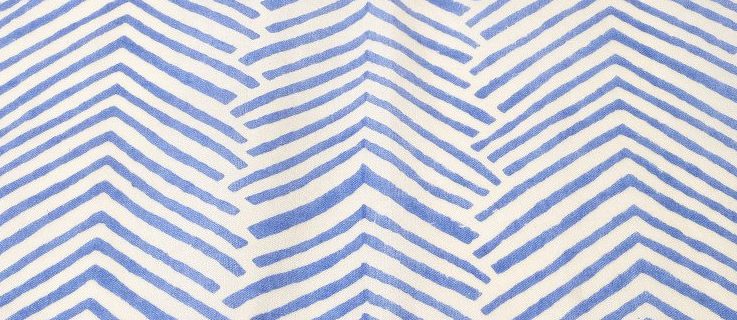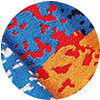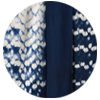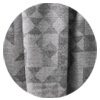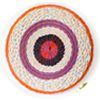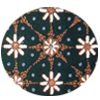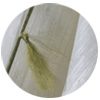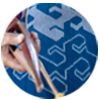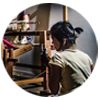Textile Residencies
IKAT/eCUT
Traditional handcraft, fair production, contemporary design: The residences bring together six designers from Germany with producers of traditional textiles in Indonesia, Malaysia and the Philippines.
Traditional handcraft, fair production, contemporary design: The textile residences taking place in the frame of the project IKAT/eCUT highlight the ‘artisanal future’ of clothes and textiles. The residences bring together six designers form Germany with producers of traditional textiles in Indonesia, Malaysia and the Philippines. In the course of two workshops and an intensive working phase at the producer’s local base products are developed, that stand out for their contemporary design, high-quality artisanship and traditional production.
All residency-partners will be tutored by Berlin based fair fashion label FOLKDAYS and be able e.V., a nonprofit-organization for inclusive design education.
Designers
Anna Teuber und Franzi Kohlhoff have a young, future-oriented design studio called teuberkohlhoff in Berlin. They are focusing on developing modern design that has narrative value apart from sheer patterns. Direct and close contact to their production partner is very important for teuberkohlhoff.
Anne Hederer ist head of the workshops for weaving and dyeing at the Kunsthochschule Berlin Weissensee. For quite some time, she has had the wish to work more intensively with traditional textile techniques in Southeast Asia and she is looking forward to valuing artisanship by contributing new designs and sustainable marketing concepts.
Frauke Maier founded the label Woolhunter in 2013 contributing to rethinking in the textile industry towards ethical methods in terms of trading and production. With Woolhunter, she is already working together with producers in Bolivia and hopes to add more partners and products in the future.
Sandra Schollmeyer works as an independent designer with textiles and objects. Expressive wall hangings are her trademark. In the course of the project, she would like to develop new artistic objects using country-specific languages of shapes and patterns and materials in exchange with experts for traditional craft techniques.
Stefanie Rittler is a product- and social-designer with special interest for fair product development. Apart from textile, she also works in the field of architecture and looks back on a carpentry apprenticeship. During her stays in Nepal and Mosambik for several months, she has had the chance to develop and implement design products with various communities.
Tanja Glissmann is a fashion designer running the label BLACK VELVET CIRCUS that produces fairly in Germany and Europe. She has been interested in working together with artisans in Southeast Asia for some time and is now looking forward to developing textile products and designs that will, in the long run, become parts of her label.
Producers
Batik Winotosastro, Yogyakarta, Indonesien
The family Winotosatro has been running their batik manufacture in Yogyakarta for more than 70 years now. Here, they use the traditional process, during which the patterns are applied by hand with wax and, in a second step, the fabric is dyed. Apart from preserving this cultural heritage that has been spread in Java for hundreds of years, the company works for an environmental-friendly use of dyers.
Borneo Chic, Tanjung Isuy und Eheng, Indonesien
Borneo Chic's mission is the work with the indigene weaving traditions of Kalimantan. Hereby, the company unites traditional craft techniques and modern fashion in form of purses. Apart from the support of the weaving tradition in Kalimantan, social and ecological sustainability is one of the company’s core values. Borne Chic offers two different residences connected to two different weaving techniques the designers will get to know. Anjat uses Rattan that is woven closely and regularly and is used traditionally for the creation of baskets. Doyo is made of the fibers of the Doyo-plant and is dyed using natural materials. As the company hopes, being part of the textile residences will open the path to new designs for their traditional ways of production. From the raw material to the complete fashion object, Borneo Chic would like to learn more about professional design processes.
Rurungan sa Tubod, Puerto Princessa, Philippines
Rurungan sa Tubod is a foundation empowering local communities in Palawan through Piña weaving. Apart from technical training Rurungan offers its weavers financial and physical infrastructure. Sustainability and social impact are core values for Rurungan. For their woven textiles, they mostly use Piña, a local fiber made from pineapple leaves. All production steps are manual – from extracting the fiber to weaving it. Through this process, from pineapple an elegant, slightly transparent textile is produced.
Studio Naenna, Chiang Mai, Thailand
Studio Naenna works with the weft-ikat-technique. They create clothes, scarfs, accessories and art objects made of hand-woven fabrics on a natural basis. An environmental-friendly and fair way of production as well as the preservation of thousands of years old techniques are important missions for the founders. In the collaboration with the designer, Studio Naenna hopes to find a new impetus and creative designs thanks to the fresh perspective on the products.
Tanoti, Kuching, Malaysia
Tanoti produces fabrics for various fashion items using the traditional songket weaving technique, which is a variation of brocade weaving. The company stands for preserving and spreading of the old techniques of songket-weaving and works for further developing the tradition in new markets and fields of application. In the textile residency-project Tanoti would like to play with their own limits and use the synergy effect resulting from the combination of young design and old handcraft for innovations, especially new products.
Die IKAT/eCUT Textilresidenzen sind ein gemeinsames Projekt von FOLKDAYS, be able e.V. und des Goethe-Instituts Indonesien.
